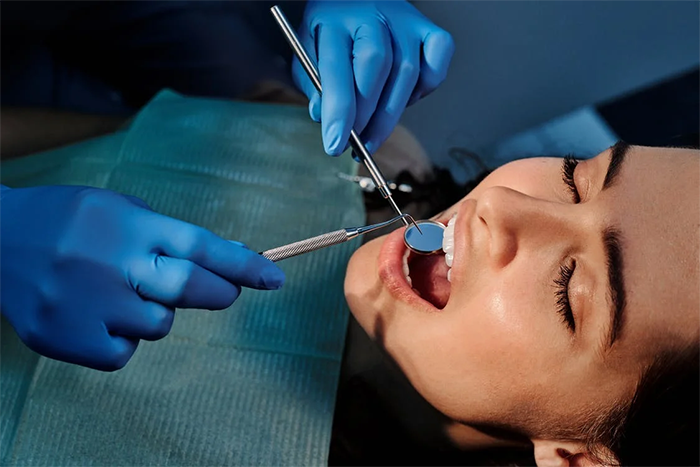What Is Dental Anxiety?
Dental anxiety is a common problem that affects many people. It can be caused by a number of factors, including a fear of needles, a fear of the dentist, or a fear of the unknown.
Dental anxiety can also be caused by a previous bad experience at the dentist. If you have dental anxiety, you may feel like you can’t breathe, your heart is racing, or you’re going to faint. You may also feel like you’re going to vomit or have a panic attack.
Dental anxiety can make it hard to get the dental care you need. If you have dental anxiety, talk to your dentist about it. They can help you find ways to overcome your anxiety so that you can get the dental care you need.
Is Dental Anxiety Common?
Yes, dental anxiety is a very common problem that affects millions of people. It can be caused by a variety of things, including bad experiences in the past, fear of pain, or simply not knowing what to expect at the dentist.
There are many ways to overcome dental anxiety, and your dentist can help you find the best solution for you.
What Causes Dental Anxiety?
There could be many reasons for dental anxiety that may differ from person to person. But below are some of the most common causes of dental anxiety.
> Fear of Pain
Fear of tooth pain is the number one reason for dental anxiety among dental patients. This fear can be caused by a variety of factors, including previous bad experiences, fear of needles, or simply a fear of the unknown.
Whatever the cause, dental anxiety & fear can be a big barrier to getting the dental care you need.
The vast majority of people who experience dental anxiety cite the fear of pain as their primary concern. This is understandable, as even minor dental procedures can cause a significant amount of discomfort.
> Fear of Embarrassment
The fear of embarrassment is another reason for dental anxiety among dental patients.
Many people feel self-conscious about their teeth and are afraid that the dentist will judge them. This can lead to a lot of anxiety and make it difficult to relax during dental appointments.
If you’re feeling embarrassed about your teeth, talk to your dentist about it. They can help you overcome your anxiety and make sure that you’re comfortable during your appointment.
> Fear of injections
The fear of injections can also cause anxiety among dental patients. This is because injections are often used in dentistry in order to numb the area around the tooth that is being worked on.
As a result, patients may feel anxious about getting an injection, especially if they have had a bad experience with them in the past. Additionally, the sight of needles can also be enough to trigger anxiety in some patients.
What Are the Dental Anxiety Symptoms and Signs?
There are many different symptoms and signs associated with dental anxiety.
Some people may feel anxious or nervous when they think about going to the dentist. Others may experience physical symptoms such as a rapid heart rate, sweating, or shortness of breath. Some people may also have trouble sleeping or concentrating.
If you experience any of these symptoms, it is important to talk to your dentist so that they can help you manage your anxiety.
How to Cope With Dental Anxiety?
> Talk to your dentist
If you have dental anxiety, it is important to consult your dentist. This is because your dentist can help you manage your anxiety and ensure that you receive the necessary dental care.
There are a variety of techniques that can be used to help reduce dental anxiety, and your dentist will be able to recommend the best course of action for you.
> Relax your mind
It can be difficult to relax your mind when you’re anxious or afraid, but it’s important to try if you want to cope with your dental anxiety and fear.
One way to do this is to focus on your breathing: take slow, deep breaths and try to let go of any thoughts that are making you feel uneasy.
You might also want to listen to calming music or use relaxation techniques such as visualization or progressive muscle relaxation.
Don’t hesitate to ask your dentist or dental team for help if you’re finding it hard to relax; they can offer reassurance and support.
> Distract yourself
One way to cope with dental anxiety is to try to distract yourself. This can be done by listening to music or watching television while you are getting your teeth cleaned.
In short, to cope with dental anxiety, you must try to distract yourself. It will help you.

